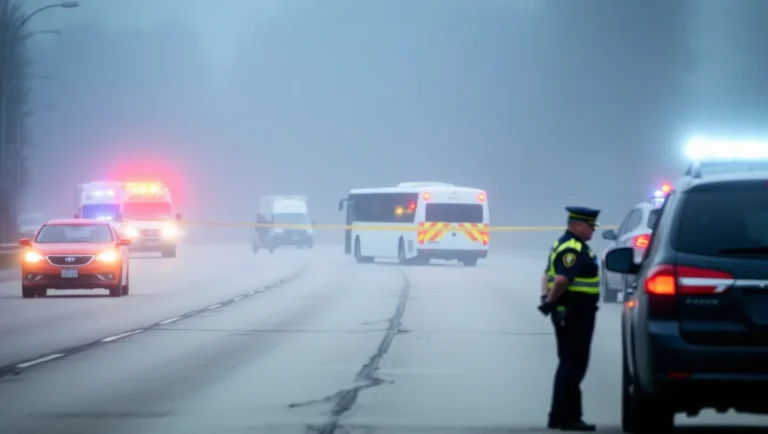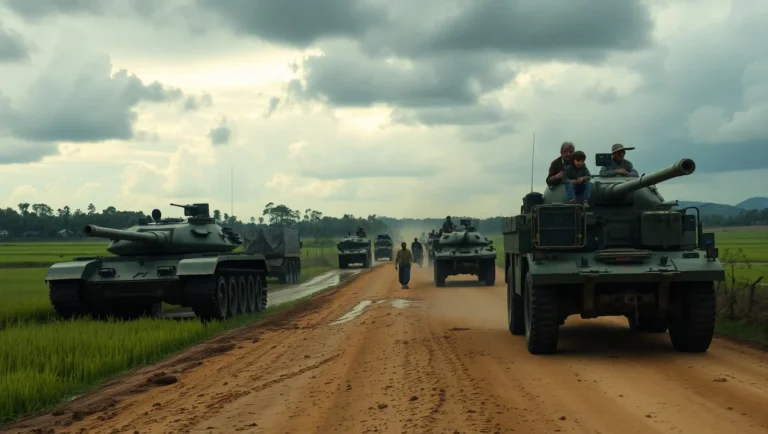
Myanmar's capital Naypyidaw prepares for elections following the end of emergency rule.
In a significant political development, Myanmar’s military leadership has officially ended the nationwide state of emergency that had been in place since early 2021. This move signals the government’s intention to move forward with general elections, now tentatively scheduled for December 2025.
The decision was announced through a formal order signed by the country’s acting president and military leader, General Min Aung Hlaing. With the lifting of emergency powers, administrative authority will now shift back to the official head of state—a position currently held by the same leader.
🇲🇲 A Transitional Phase Begins
Describing the event as a transition to a new phase, General Hlaing stated in a speech, “We have already passed the first chapter. Now, we are starting the second chapter.” His remarks were shared by state-run media outlets on Thursday, reflecting the administration’s push to reshape the country’s governance framework.
Although an exact date has not been finalized, authorities have confirmed that the elections are expected to be conducted in multiple phases to accommodate ongoing security and logistical considerations.
🗳️ New Structures to Support the Electoral Process
In preparation for the elections, Myanmar has launched a new “Union Government” and a “National Security and Peace Commission”. These bodies will supervise the defense and electoral processes in the coming months.
The military leadership has also initiated training sessions on electronic voting systems. Political parties are being formally registered, and operational procedures are being set up ahead of the anticipated nationwide vote.
🤝 Government Calls for Participation
In an effort to ensure broader engagement, Myanmar’s administration has issued public invitations, including mass text messages and public notices, encouraging all groups and communities to participate peacefully in the election process. Additionally, the government has proposed incentives and legal pathways for groups currently in opposition to rejoin the political fold.
The government has emphasized that these elections represent a step toward “multi-party democracy” in the country, aiming to involve a wider range of voices and political perspectives.
⚖️ New Legal Measures Introduced
To protect the integrity of the election process, a new law has been enacted that outlines legal consequences for actions intended to disrupt or interfere with voting. According to the government, such measures are intended to ensure peaceful participation and a secure environment for all voters.
📊 Logistical and Data Challenges
Despite preparations, the country faces practical hurdles. A national census held as groundwork for the election failed to gather data from nearly 19 million citizens due to security limitations. This gap underscores the challenges ahead, particularly in reaching remote or conflict-affected areas.
🌐 International Reactions & Regional Support
Myanmar’s regional partners have responded with calls for peaceful and inclusive dialogue. Notably, China’s foreign ministry expressed support for Myanmar’s efforts to resolve political issues within a legal and constitutional framework.
Meanwhile, international observers and research groups continue to monitor the situation closely, noting that the same military leadership remains in control of major governmental functions.
🔍 What Lies Ahead?
While the lifting of emergency rule marks a turning point, Myanmar’s political landscape remains complex. Observers suggest that the coming months will be critical in determining whether the upcoming elections serve as a genuine step toward broader representation or a restructuring of current power dynamics.
📝 Final Thoughts
Myanmar’s journey toward political restructuring is under global watch. With the state of emergency lifted and new administrative bodies in place, the December elections could be a pivotal moment for the nation’s future. As developments unfold, the international community and citizens alike await a process that promises greater inclusivity and democratic stability.


